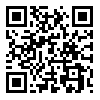مجله رویش روانشناسی از دادن گواهیهای کاغذی معذور است. لطفا تقاضا نکنید. همه گواهی ها در صفحه شخصی کاربران موجود است.
year 13, Issue 9 (Atumn 2024 2024)
Rooyesh 2024, 13(9): 201-210 |
Back to browse issues page
Download citation:
BibTeX | RIS | EndNote | Medlars | ProCite | Reference Manager | RefWorks
Send citation to:



BibTeX | RIS | EndNote | Medlars | ProCite | Reference Manager | RefWorks
Send citation to:
Salehbek S, Behzadpoor S. (2024). The Moderating Role of Women's Attachment Style in Predicting Their Marital Satisfaction Based on Their Husbands' Internet Addiction. Rooyesh. 13(9), 201-210.
URL: http://frooyesh.ir/article-1-5351-en.html
URL: http://frooyesh.ir/article-1-5351-en.html
1- MA in Clinical Psychology- Family Therapy, Department of Psychology, Faculty of Humanities, Science and Culture University, Tehran, Iran.
2- Assistant Professor, Department of Psychology, Faculty of Humanities, Science and Culture University, Tehran, Iran. ,s.behzadpoor@usc.ac.ir
2- Assistant Professor, Department of Psychology, Faculty of Humanities, Science and Culture University, Tehran, Iran. ,
Abstract: (1437 Views)
The present study aimed to examine the moderating role of women's attachment style in predicting their marital satisfaction based on their husbands' internet addiction. The research method was descriptive- correlational and statistical population was every 20-50-year-old partner who lived in Tehran in 1401. 208 partners were selected as samples through the convenience sampling method and They answered the Enrich Marital Satisfaction Questionnaire (EMS, Fowers & Olson, 1993), Hazan and Shivers Adult Attachment Questionnaire (AASQ, 1987), and Young Internet Addiction Test (IAT, 1998). Data were analyzed with Pearson correlation and regression analysis tests. The results showed that there was no significant correlation between husbands' internet addiction and women's marital satisfaction (p>0.05). In addition, there was a significant and positive relation between women's secure attachment style and their marital satisfaction (p<0.05) and a significant and negative relation between avoidant/ and anxious-ambivalent attachment style and their marital satisfaction (p<0.01). results showed that Attachment style explains a total of 11% of the variance of marital satisfaction. Furthermore, women's attachment style (both secure and insecure) cannot moderate the relation between husbands' internet addiction and their marital satisfaction. It can concluded that the women's attachment style significantly affected their marital satisfaction, but husbands' internet addiction didn’t affect it.
Type of Article: Research |
Subject:
Family Psychology
Received: 2024/05/1 | Accepted: 2024/06/16 | ePublished: 2025/01/29
Received: 2024/05/1 | Accepted: 2024/06/16 | ePublished: 2025/01/29
Send email to the article author
| Rights and permissions | |
 |
This work is licensed under a Creative Commons Attribution-NonCommercial 4.0 International License. |





